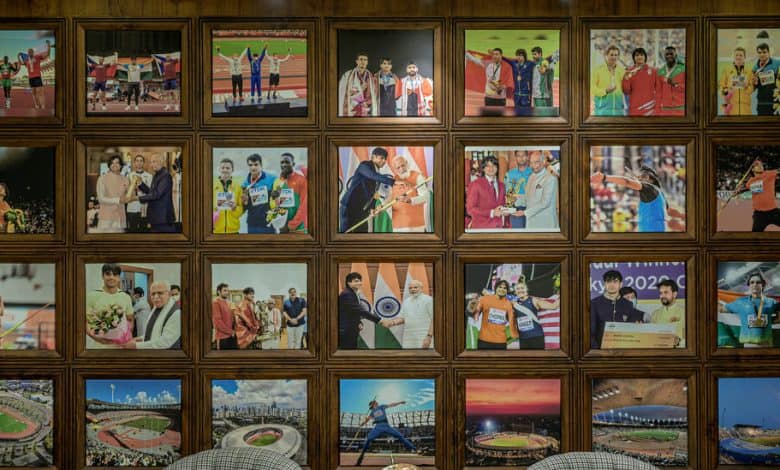The Gold Medalist Starring in India’s Olympic Dreams

The boy grew heavy on the milk, cream and butter of his grandmother’s doting. By age 13, Neeraj Chopra weighed nearly 190 pounds, making him one of the biggest boys in his tiny farming village. His father and uncles urged him to join a gym to lose weight. By chance, he saw a javelin being thrown and noticed that, in flight, it seemed to shimmy like a fish through water. He was smitten.
A decade after that improbable beginning, Chopra won the javelin competition at the Tokyo Olympics in 2021. It was the first gold medal ever won by India in track and field, considered the marquee sport of the Summer Games, and only the country’s second in an individual event in more than a century of Olympic competition.
Chopra’s triumph inspired athletes across India, the world’s most populous nation. And as it raised the country’s dreams for more medals at this year’s Paris Olympics, it also helped to stoke a national ambition for something even bigger: a chance to host the Summer Games for the first time.

A mural honoring Chopra’s Olympic gold medal outside the stadium where he learned to throw the javelin.
In October, Prime Minister Narendra Modi declared at a meeting of the International Olympic Committee in Mumbai that India would “leave no stone unturned” in seeking to host the 2036 Olympic and Paralympic Games. That quest could yield another transformative moment for India: a huge national effort both to engage a vast youth population in sports and to leverage one of the last truly global stages as a validation of India’s economic, political and technological primacy.
If India’s bid to host the Games succeeds, the 2036 Olympics will follow a template established over the last 60 years by three other Asian nations — Japan (Tokyo 1964), South Korea (Seoul 1988) and China (Beijing 2008) — for whom the Summer Olympics served as a symbol of transition and emergence.